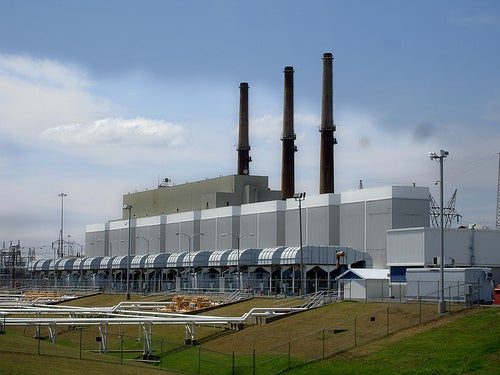The Social Cost of Stagnation: A Call for FERC Action
By: James T. B. Tripp, EDF Senior Counsel
 America’s electricity industry – the single largest source of carbon pollution in the U.S. – is at the heart of some of the world’s biggest environmental challenges, especially climate change. Given this connection, you would think an agency called the Federal Energy Regulatory Commission (FERC) would take into account the major environmental consequences of its policies, which fundamentally shape the U.S. power industry. Sadly, you would be wrong.
America’s electricity industry – the single largest source of carbon pollution in the U.S. – is at the heart of some of the world’s biggest environmental challenges, especially climate change. Given this connection, you would think an agency called the Federal Energy Regulatory Commission (FERC) would take into account the major environmental consequences of its policies, which fundamentally shape the U.S. power industry. Sadly, you would be wrong.
FERC is charged by law with ensuring wholesale rates and other critical aspects of the electricity industry, such as transmission practices, are “just and reasonable.” Yet FERC’s official policy is to exclude environmental considerations from its regulation of the industry. Why? FERC’s reasoning is based on a combination of questionable statutory interpretation and an approach to energy regulation that is stuck in the past. In fact, FERC’s statutory mandate over wholesale electricity sales and transmission dates back to the 1930s, long before scientists discovered climate change.
This must change. The need to curb greenhouse gas emissions from electricity generation is widely recognized at all levels of U.S. government, from Federal to municipal, and by industry too. Yet FERC, despite having taken some steps in the right direction, has not kept up with the times. A paradigm shift in approach is necessary for America to reach a clean-energy future. FERC must begin taking climate change into consideration when making important policy decisions about the future of our energy industry.
In a new article published in the Harvard Environmental Law Review last month, former EDF legal intern and recent Harvard Law School graduate, Christopher Bateman, and I lay the groundwork for this new approach. We argue how FERC’s current policy is an obstacle to optimal regulation of the electricity industry and its environmental impacts, especially greenhouse gas emissions. The article proposes that FERC follow the lead of other Federal agencies, which now factor the social cost of carbon emissions into regulations that affect carbon emission levels.[Tweet “We need a more environmentally-conscious @FERC to meet new challenges and opportunities http://ow.ly/CovUM “]
A Federal interagency task force has developed an official estimate of this social cost for the agencies to incorporate, and this resource lies waiting to be incorporated by FERC. A recent report from Berkeley Law School has also called for FERC to factor the social cost of carbon into its regulation.
We address FERC’s reasoning for its current policy and find these reasons unconvincing, arguing that an environmentally inclusive approach would be both permissible under relevant law and superior as policy.
We also offer examples of progressive reforms that might be possible under a more enlightened approach. These include carbon-conscious transmission planning, greater coordination with EPA and other environmental regulators, social-cost electricity dispatch (in which regional electricity market operators would factor the cost of carbon emissions into real-time decisions about, for example, which type of power plant to bring on line, e.g. wind versus coal), and comprehensive review of whether economic incentives in the power industry are properly aligned to reduce carbon emissions to optimal levels.
We live in a time of great challenges, but also great promise. Technological innovation is providing the tools to transform how we make, move, and use energy in a way that protects the environment instead of degrading it. We need a more environmentally-conscious FERC to meet these new challenges and opportunities. Only then may we fully realize the potential of a clean energy future for all.
Photo source: Dave Barger Flickr










